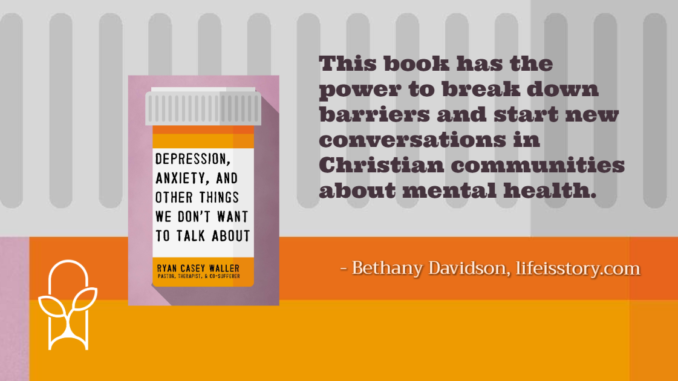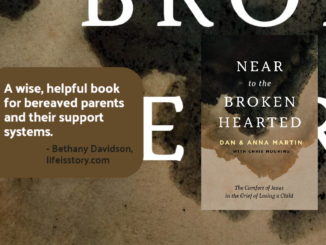
Published by Thomas Nelson on January 5, 2021
Genres: Non-Fiction, Christian Life
Buy on Amazon
Goodreads

Mental illness loves to tell lies. One of those lies is that you really should be able to manage what you're struggling with. Pastor and psychotherapist Ryan Casey Waller says no. Mental health issues are not a symptom of a spiritual failing or insufficient faith; rather, suffering is the very thing our Savior seeks to heal as he leads us toward restoration. And yet, as Waller has experienced personally, the battle can be lonely and discouraging. But it doesn't have to be.
Combining practical theology, clinical insights, and deep empathy, Waller offers a rare mix of companionship and truth, inviting us to
have shame-free conversations about mental health; discover why self-knowledge is so important to a deep relationship with God; understand the intersection of biology, psychology, and spirituality; explore varying avenues of healing in community, therapy, and medication; and be equipped to support loved ones while practicing self-care. Waller bridges the gap between the spiritual and the psychological in this empathetic, imminently helpful guidebook, reminding us all that we are not alone. Hope starts now.
Ryan Casey Waller is a pastor and licensed psychotherapist, and in his new book, Depression, Anxiety, and Other Things We Don’t Want to Talk About, he shares his personal story, summarizes information related to mental health, medication, and therapy, and encourages his readers to talk about their experiences and get help. He writes in a casual, conversational style, and is bracingly honest about his own struggles with depression and alcohol abuse. He includes short narratives related to his experiences between some of the chapters, writing about himself in the second person as if he were observing himself from the outside during the darkest time in his life. Because he tells the truth about his own struggles and how they have affected his family, he gives the reader a sense of his credibility as a fellow sufferer.
Waller addresses common questions related to why God allows suffering, dispels various myths about mental health, and explains what a state of positive mental health should look like, helping readers measure their situation against a vision for what life can be like, instead of just cataloging their symptoms. This was eye-opening for me, because even though I have not dealt with severe depression or anxiety in years, I could see based on his description of a positive state just how much my mental health has degraded over the past year of dealing with the pandemic. Waller’s approach helps someone conceptualize what holistic wellness looks like, and he then provides information about how people can pursue help. He also writes about suicide, shares compassionate stories about people he knows who have died this way, and addresses current statistics about how “epidemic” depression has become. My one significant critique of this book is that I wish he had written more about reasons why mental health issues have become so prevalent in our time.
During the second half of the book, Waller demystifies the process of finding care, provides detailed information about medication options, and helps de-stigmatize pharmaceutical medications, even though he also acknowledges that health and lifestyle changes can help alleviate mental struggles. Throughout the book, he is direct, balanced, and informative, and he provides lots of practical advice for how people can take incremental steps towards improving their mental health. This book is an excellent resource for people who are dealing with psychiatric, situational, or emotional issues, and I would strongly encourage friends and family members of sufferers to read this as well. This book has the power to break down barriers and start new conversations in Christian communities about mental health. It isn’t perfect, since no book on such a sensitive subject could be, but it is an excellent resource.



